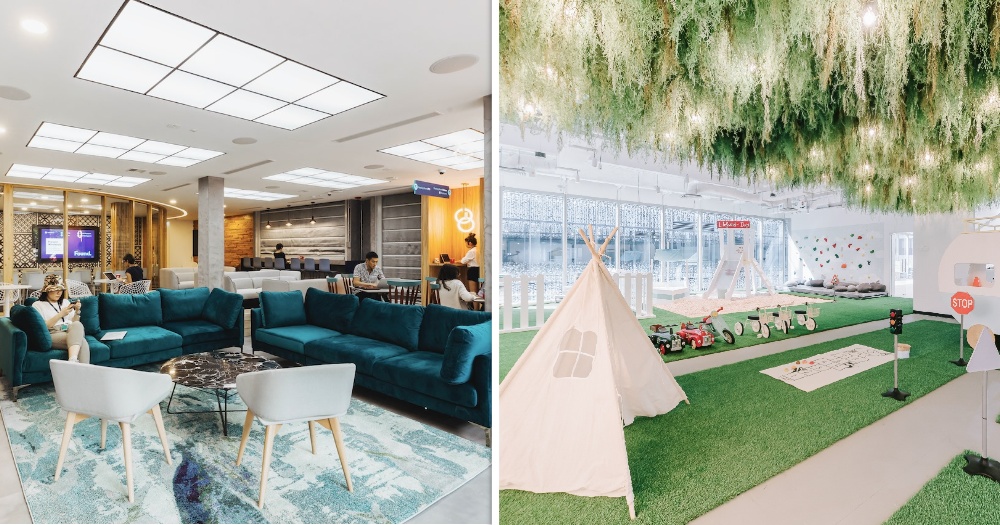Follow us on Telegram for the latest updates: https://t.me/mothershipsg
The first official co-working space was a relatively new phenomenom, firmly a product of the 21st century.
As the story goes, Brad Neuberg started a co-working space back in 2005 as he wanted to "find a way to combine the feeling of independence and freedom of working by himself with the community feel and structure of working with others".
Thus, a new workspace was born – a "membership-based" workplace in which many different workers could come together, sharing snazzy amenities in an even snazzier "office".
By 2019, co-working spaces, driven by demand from multi-national corporations (MNCs) and start-ups, had tripled (from 2015) to account for 3.7 million square feet of commercial space in Singapore, according to a report by Colliers International.
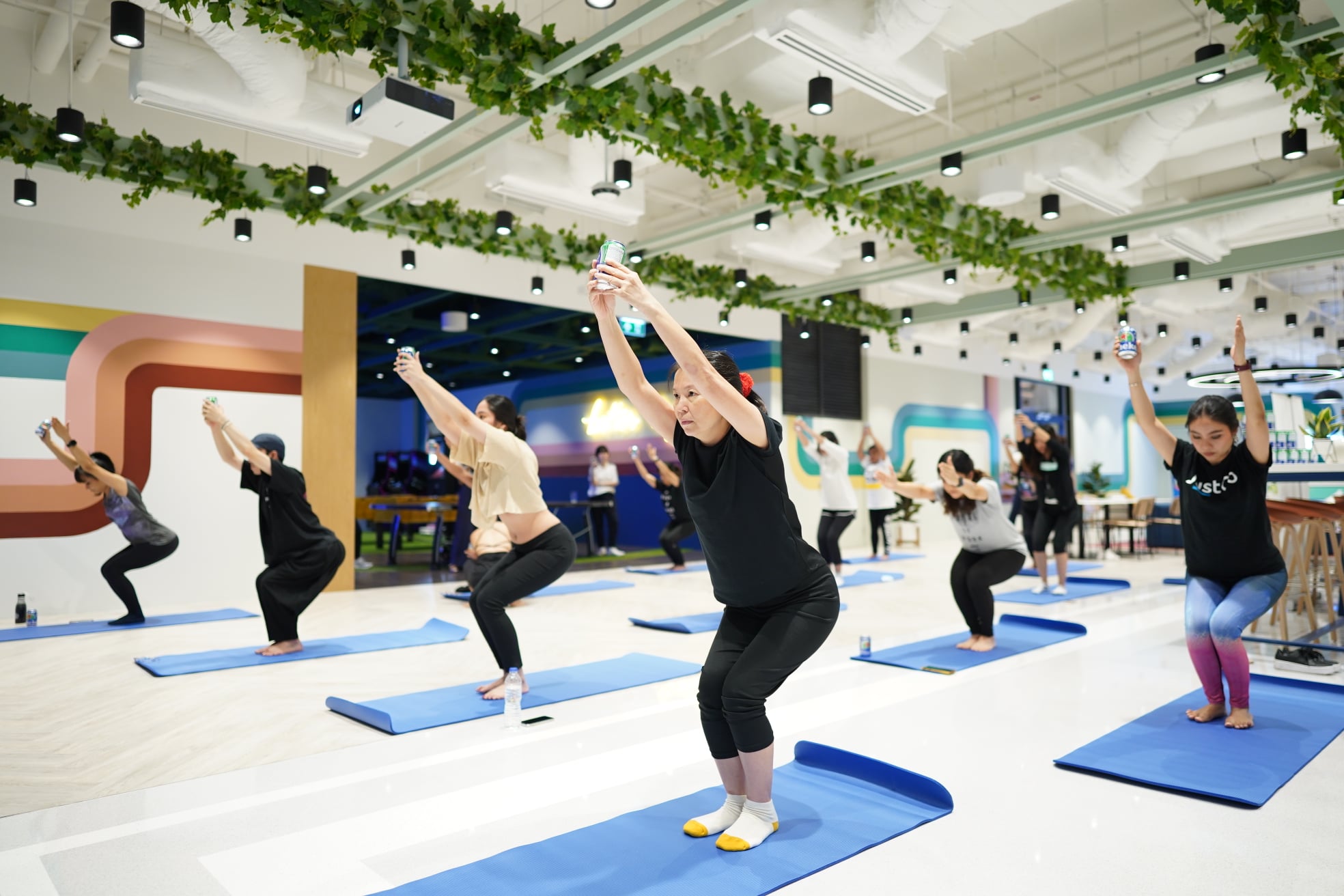 Yoga session at a co-working space. Image via JustCo Facebook
Yoga session at a co-working space. Image via JustCo Facebook
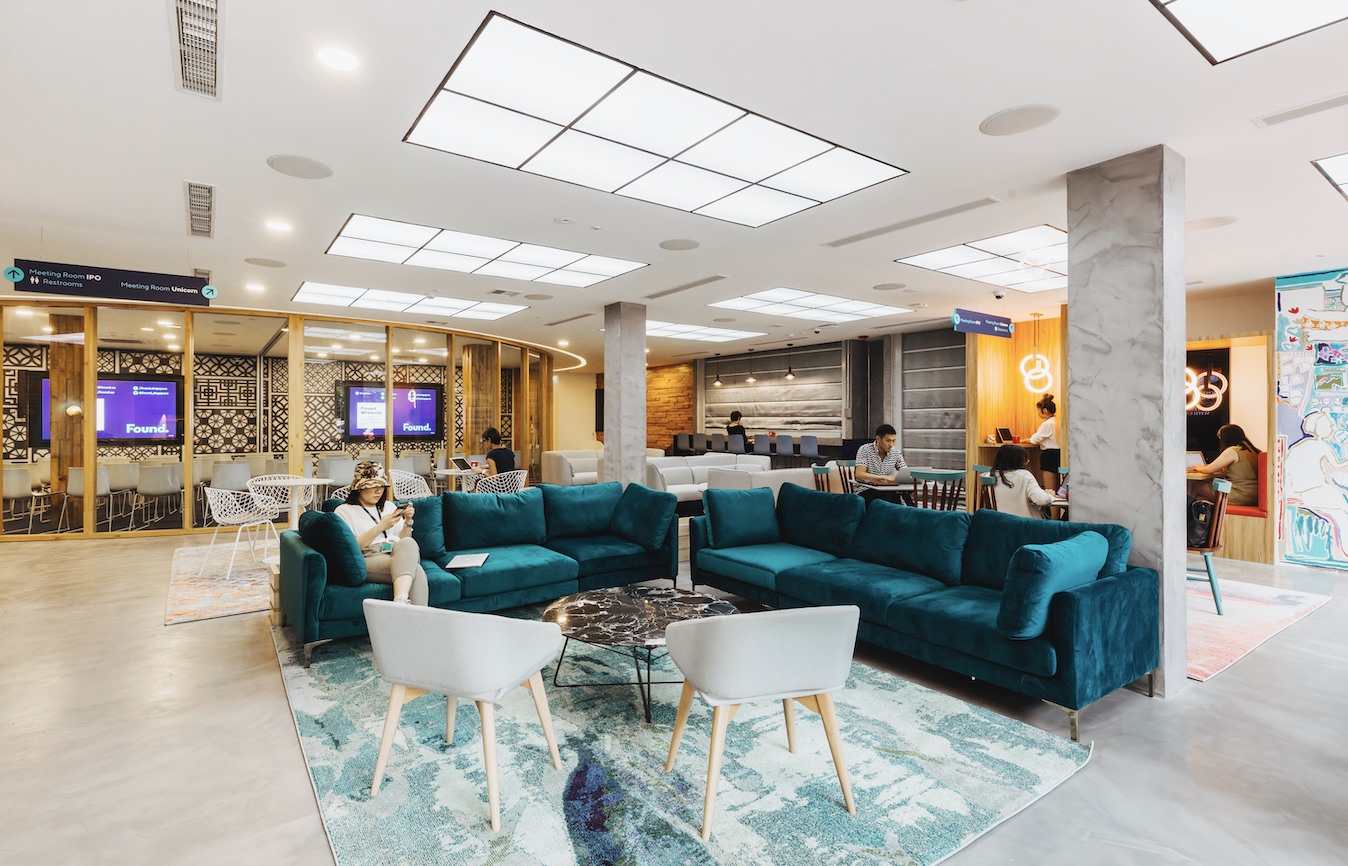 Communal area. Image via Found8 Facebook
Communal area. Image via Found8 Facebook
But then, the pandemic hit.
Still in demand?
While you would think that co-working spaces might have died out completely during a pandemic that emptied offices worldwide, they have remained surprisingly hardy.
Co-working spaces Mothership spoke to confirmed that occupancy numbers have returned to 75-90 per cent of pre-Covid 19 levels, this happened before the recent change in Singapore’s WFH policy.
Further growth in the space is also expected as of 2021, according to Colliers, although growth has slowed as compared to before (only about three per cent this year).
So, what's continuing to attract businesses to the arena of colourful office spaces, hotdesking, and coffee/kombucha on tap?
All bout' flexibility
Most co-working spaces told Mothership that demand had picked up since the end of 2020.
While the pandemic has been undeniably rough on owners and operators of office space, it has also forced many companies to rethink what work looks like.
Brandon Chia, Vice President and Head of JustCo Indonesia and Singapore, explained that a need for “maximum flexibility” has been driving demand from large corporate clients, including Fortune 500 companies. JustCo has a total of 20 outlets in Singapore alone, and spaces in seven other countries within Asia.
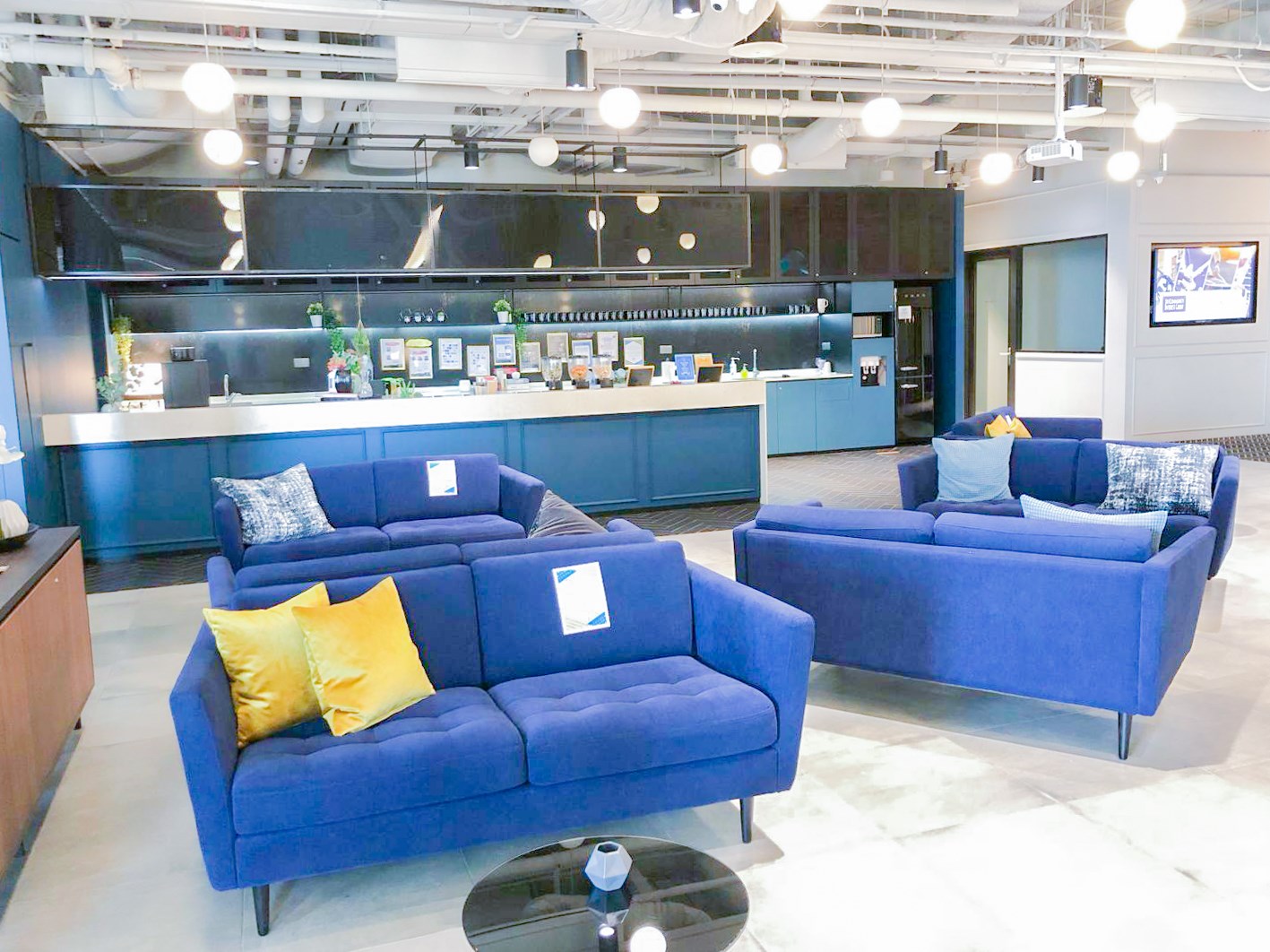 Image via JustCo Facebook
Image via JustCo Facebook
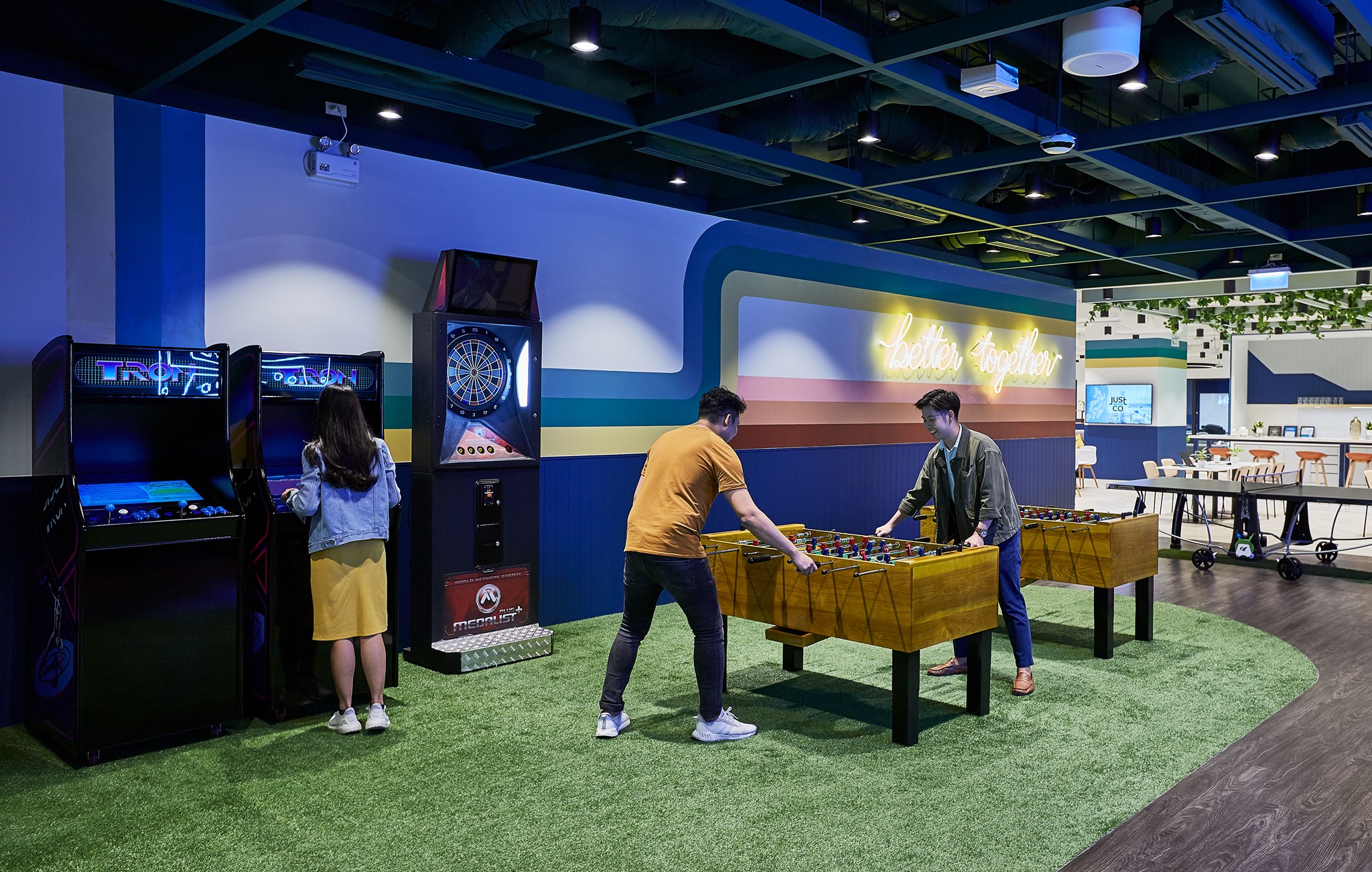 Image via JustCo Facebook
Image via JustCo Facebook
With people going into office less and for different reasons than before, MNCs are looking to “break out” of the traditional office model – to cut real estate costs, and to mitigate uncertainty should there be another crisis.
Workers have also begun seeing the value of flexi-work arrangements and the hybrid workplace, according to Elaine Kim, founder and CEO of Trehaus – a co-working-space/nursery.
Now that we know work-from-home for some industries is possible, can we, or do we even want to, go back to the status quo even after Covid-19 is finally over?
As Kim said:
“People think more about work-life balance nowadays. Many MNCs are allowing employees to work flexibly, to accommodate to the needs of working parents and professionals.”
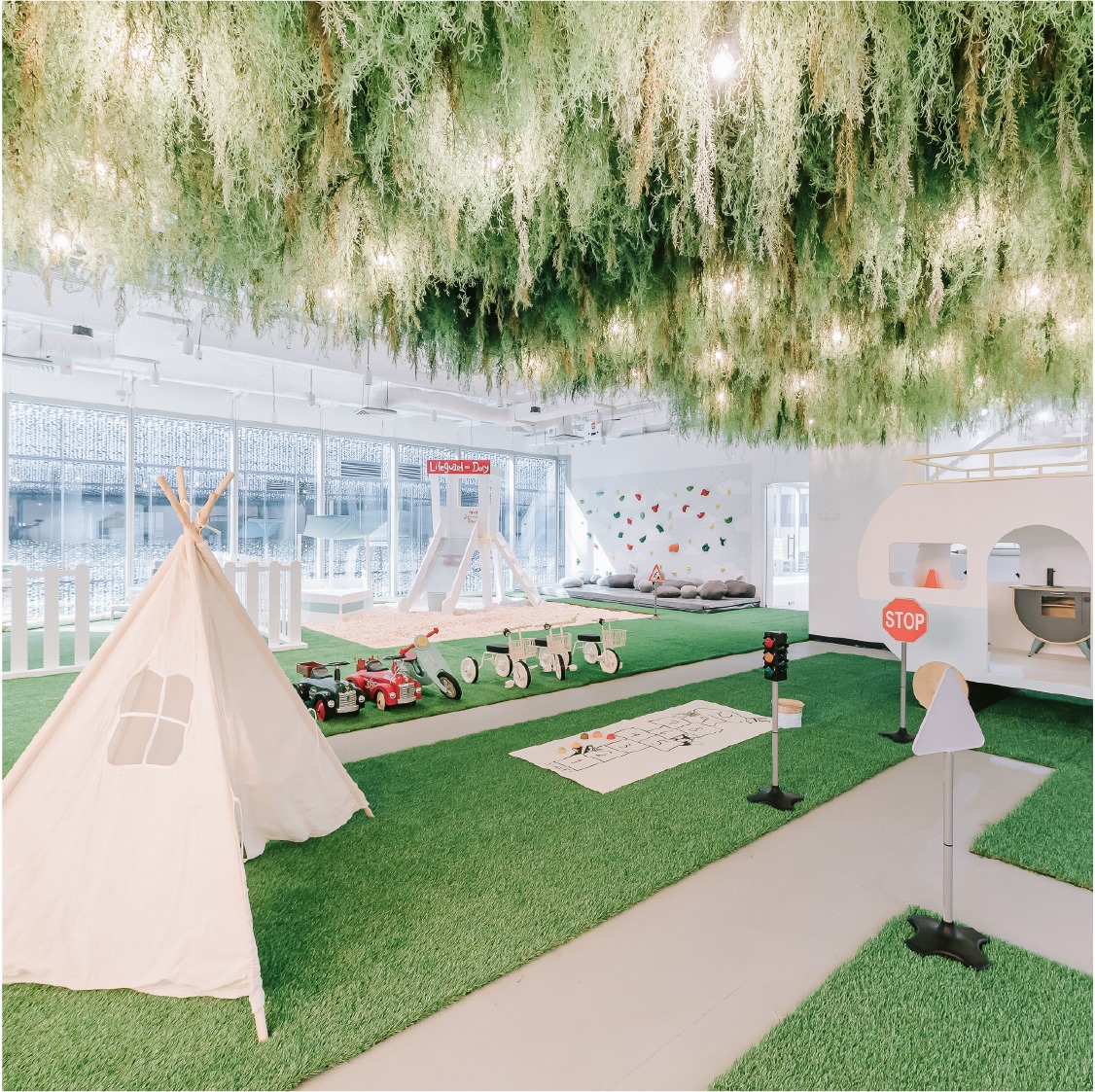 A co-working space with a nursery/creche, and licensed preschool for kids from 18-months to six years. Image via Trehaus Facebook
A co-working space with a nursery/creche, and licensed preschool for kids from 18-months to six years. Image via Trehaus Facebook
This presents a conundrum of sorts for some employees as well.
It's all good and well to champion flexibility, but if the office is not an option, and your house (for a myriad of reasons) is not an option, where do you work from then?
Kim thinks co-working spaces might be the solution, “WFH might work for most people, but not for parents with young children. Our space [specifically] provides a middle ground, for parents to concentrate on work, with your kids looked after by a licensed caregiver a few feet away. The beauty of co-working spaces is that it allows for that kind of flexibility.”
The power of community
The other appeal is of course, one of the premises upon which co-working was built; that is, to be part of a larger community of like-minded people.
Kim explains that co-working spaces offer a "human touch" in a lonely pandemic – a space where a lot of inter-business partnerships can thrive.
Clyde Andrade, manager of sales and business development at Found8, adds that this sense of community and interaction between different community members is what ensures there is always support available in the space when needed.
"Aside from fulfilling the basic office amenities, a co-working space is further equipped with breakout areas, collaboration areas, phone booths, a hospitable environment and most importantly, a sense of community."
In a post-pandemic world, where businesses reconsider the purpose of the office, co-working will “act as a catalyst of change", allowing members to collaborate in a “vibrant space” while “carrying out conducive work”.
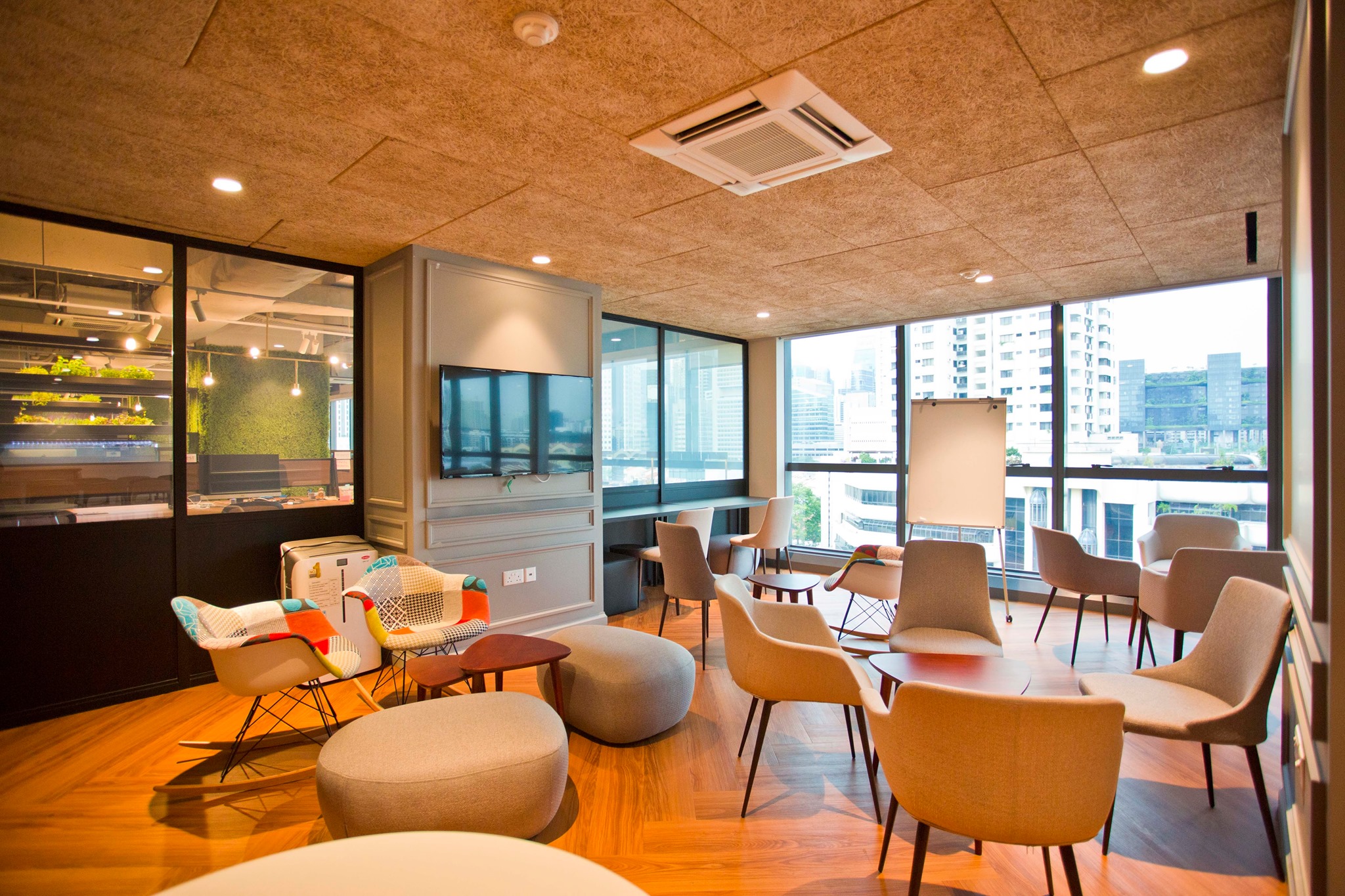 Image via Found8 Facebook
Image via Found8 Facebook
A hybrid work solution for the future?
Chia said that Covid-19 had accelerated the implementation of flexible work arrangements, with co-working spaces uniquely positioned to provide an alternative for businesses unsure of what the future holds.
They present a hybrid workspace solution for businesses looking to adapt to a more dispersed workforce with access to a wider variety of locations.
Chia added, "In a post Covid-19 world , the ‘work from anywhere’ model will become the norm, not the exception.
Co-working spaces can provide maximum flexibility for the purpose of workforce decentralisation, remote working, [Business Continuity Plan] BCP implementation, and more."
Additionally, with a tech-enabled workspace, employees will get to decide how they want to work, to achieve the best productivity.
Kim, who balances her responsibilities as Trehaus CEO and a working doctor in the day, said, "We’re made for the post-Covid world, as we’ve been advocating since pre-Covid for working parents to have flexibility to a hybrid workplace, and be able to work from home and various places."
"The new world is not about sitting in office from 9am-6pm and not getting to see your child anymore; this is the future of work for working parents and their families".
Top image via Found8 and Trehaus Facebook
If you like what you read, follow us on Facebook, Instagram, Twitter and Telegram to get the latest updates.
